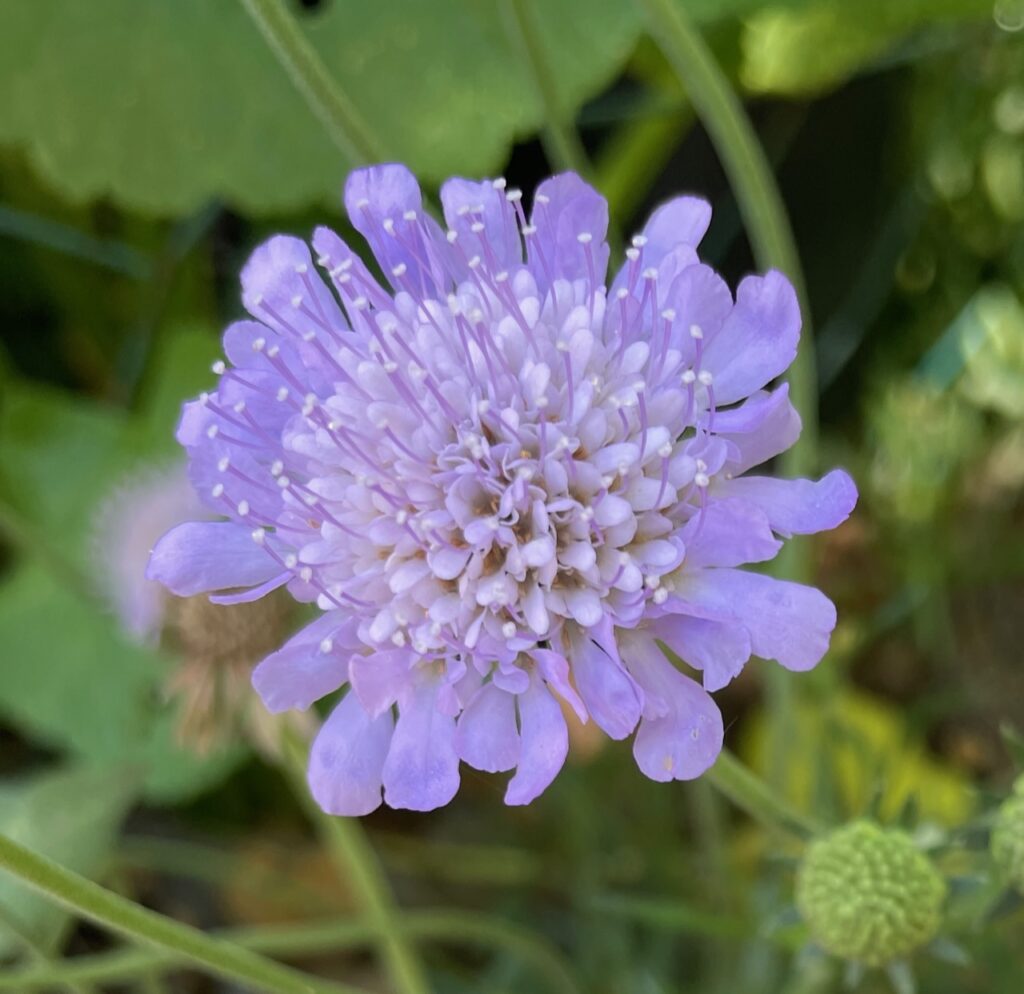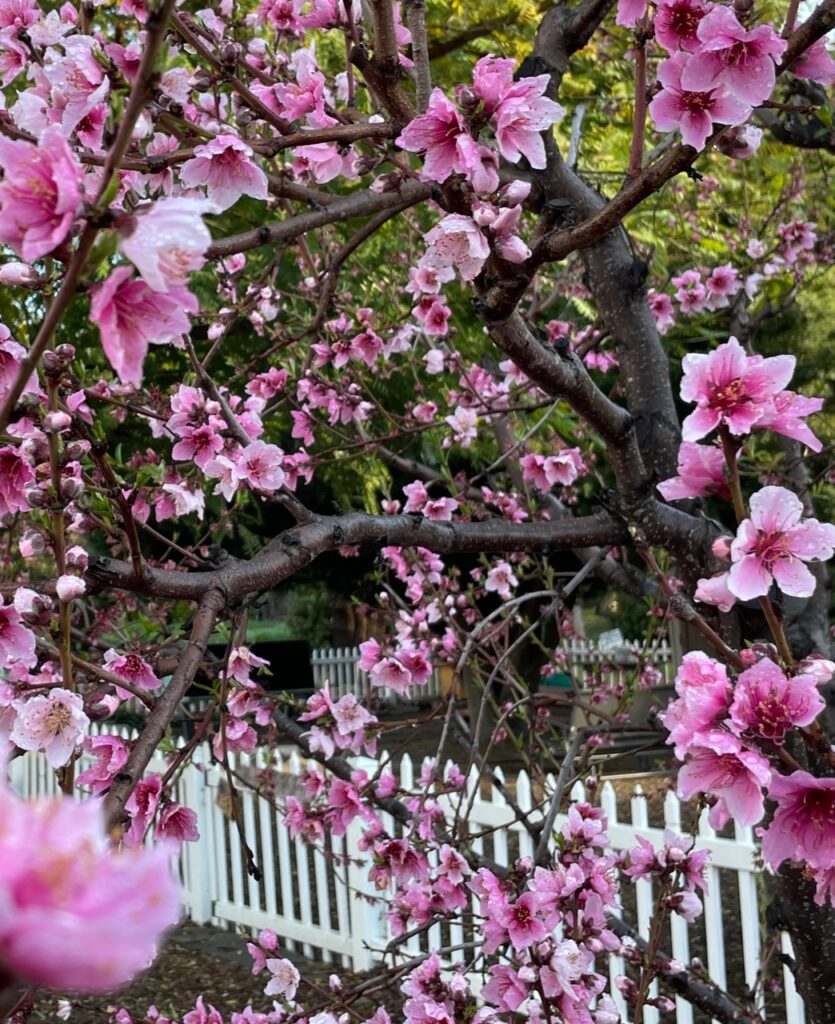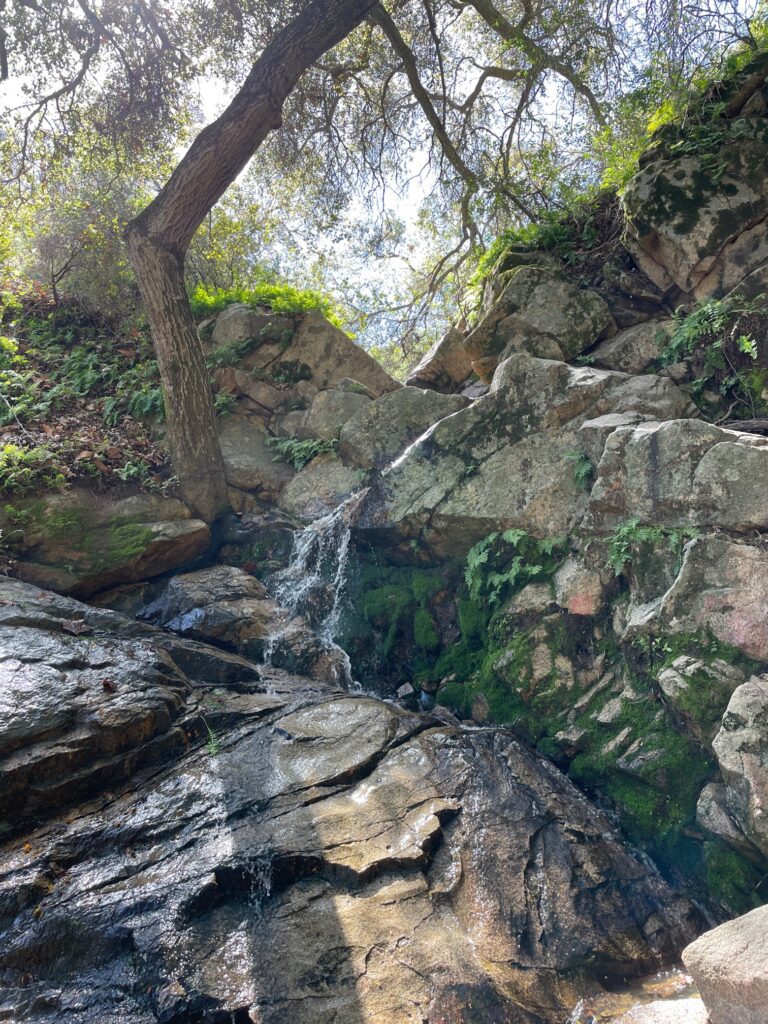
Nature leads to improved health and well being
I’ve felt, for a long time, out of touch with nature and especially the plant world. I didn’t grow up learning the names of local flora, except for the names of a few very abundant species. In fact, if truth be told, I knew the names of only a few of the many abundant species. Even more, I was interested in the world of microscopic life of both flora and fauna, which can be seen only with a microscope. This left me with a serious deficit of knowledge about the life around me. I’ve been taking this “macro” life for granted for most of my 69 years of life on the planet.
Paying attention to the natural world
While I’m not frantically trying to make up for this deficit, I find time to stop and photograph the natural beauty along my daily walks. The capabilities of my cell phone allow me to effortlessly identify most of the species I come across. It’s just a quick “click-a-identify.” More importantly this almost literal “stopping to smell the roses” brings me closer to the living world around me. This more intimate relationship makes the world softer. I am beginning to feel more like a part of the world. It’s late in coming, but not too late.
I’ve been taking walks for decades now, usually just around the neighborhoods I have lived in. Close to where I lived in Monrovia, California, there was a hike to a waterfall in the hills. Hiking there is part of the regimen of physical exercise that many submit to in order to have better health.
As I went on these walks and hikes, I started taking greater notice of the great diversity of flora. I marveled at how people dedicated time, energy, and creativity to plant striking gardens. Every garden had its own variety and its own character. Collectively, the citizens of Palms, where I once lived, had created a very large garden. It brings joy to everyone who takes the time to notice. Walking through such beauty is a wonderful way to enjoy the magnificent variety of colors and shapes.
Discovering the joys of nature
That was twenty years ago. I now live in a city that’s about eight miles east of downtown Los Angeles. Fortunately, during my daily walks, I’m regaled with the beauty of the neighborhood gardens; some well-kept, others not so much. It wasn’t until recently that I became conscious of the joy that se eing this rich flora produces in me. I finally began to realize that seeing this beauty actually has a very definite effect on my well-being. The sight of this diverse flora fills me with joy, and possibly with comfort and assurance as well. Some biologists have claimed that even seeing large expanses of green land [and open water] produces a sense of security and well-being in us. Brings to mind the beautiful teachings of the biologist and poet Robin Wall Kimmerer who blends science and Native American wisdom in the book Braiding Sweetgrass.

Research supported my new found appreciation
Just one week after this little epiphany of the effect flora produced in me, I visited a friend. On her bookshelf my eyes lit on a book with the title Nature Principle: Reconnecting with Life in a Virtual Age by Richard Louv. My friend graciously allowed me to take the book home. The book did for me what books often do for readers: it opened up a new world!
As I poured through the pages of Nature Principle a number of things happened to me. For one, I realized that my experience with nature is shared by just about everyone (duh!). Secondly, that human relationship with nature has been seriously explored for decades (more likely millennia). I was only touching the very tip of the iceberg of possibilities. Thirdly, serious, peer-reviewed, research has shown that many benefits accrue to humans in their relationships with nature. So much so that therapists have begun to prescribe nature excursions to individuals suffering from a variety of conditions. These conditions include stress and anxiety, as well as a new term coined; nature deficiency disorder!
None of these discoveries should surprise me. For most of our evolutionary trajectory, our ancestors were not just surrounded by nature but were completely emersed in it. We could say that they communed with nature. So, of course, intimacy with nature is … well, natural!
The relatively recent urbanization of humanity (relative to the duration of our evolutionary history) has had an impact. Something like 50% of all humans live away from environments where we were surrounded by nature. They now inhabit places where contact with nature is considerably limited.
The benefits of connection with nature
Perhaps it is time to start reversing this trend away from nature. We don’t have to go live on a farm or in a forest or on a mountain. But we can bring more nature into our lives, if even only by tending a garden.
Nature Principle introduces the reader, or reminds the reader, of the many benefits of our connection to nature. It then elaborates on this connection and its importance to humans. It reports on many carefully executed scientific studies that investigated the effects of human interactions with nature. The book explains why nature has this effect on us. Furthermore, it urges the readers to immerse themselves in nature deliberately and consciously. The groups observed in these studies were of all ages. However, certain studies focused on the benefits to specific age groups such as school children or aging individuals.
Here are some of the results of studies shared in this wonderful book.
Finding peace in a walk in nature
The Nature Principle presents the reader with a wide variety of incentives to increase one’s contact with nature. We probably all vaguely suspect that our contact with nature is beneficial. I know that I did. We’ve probably all had a moment of bliss or euphoria or just plain peace brought about by contact with nature. Whether it was a beautiful vista, a walk, or just by looking out one’s window onto a garden it brought some peace. However, this book puts these vague notions or suspicions on firm footing and fleshes them out. It tells us what the benefits are and then supports the claims with a lot of pertinent studies.

Everyone, no matter their age, reaps great benefits from our proximity to nature. Example one: Studies claim that kindergarten-age children who have classes outdoors in nature are three times more likely to create new games and use their imagination. The explanation given: “the more loose parts there are in an environment, the more creative the play. …In a tree, a woods, a field, a mountain, a ravine, a vacant lot the number of loose parts is unlimited.” Other researchers found that “children show a significant reduction in the symptoms of attention-deficit disorder when they engage with nature.”
Improving intelligence
You may not have suspected that our exposure to nature can enhance our intelligence. The authors of the research explain that this can happen in two way. “First, our senses and sensibilities are improved through our direct interaction with nature. . . Second, our ability to pay attention, think clearly, and be more creative is stimulated by a rural environment. Even if we haven’t previously been informed of this study, we may have suspected what this study shows. We think more clearly after being in a natural environment for a bit. Unconsciously, intuitively, we may seek out experiences that help us clear up our minds.
Recovering from mental fatigue and improving memory
A third, and I think very important example of how our lives are enhanced by nature is “that direct and indirect contact with nature can help with recovering from mental fatigue and the restoration of attention. In addition to supporting the theory that nature experience can improve psychological health, they also found that it helped restore the brain’s ability to process information.” Doesn’t our intuition tell us to go to nature to rest our brain?
In an investigation by the Kaplans into the benefits of being outdoors on human mental health suggests that “nature simultaneously calms and focuses the mind. At the same time it offers a state that transcends relaxation, allowing the mind to detect patterns that it would otherwise miss.” I think it follows that, as investigators at the University of Michigan reported, “participants’ memory performance and attention spans improved by 20% after just an hour of interacting with nature.”
The nature cure
It stands to reason that sooner or later clinicians and therapists would start to prescribe different types of exposure to nature to deal with mental conditions. New research supports the view that nature therapy helps control pain and negative stress. For people with heart disease, dementia and other health issues, the nature prescription has benefits that may go beyond the predictable results of outdoor exercise.” Researchers found that, compared to patients with brick views, patients with tree views had shorter hospitalizations. This was on average, by almost a full day. They also had less need for pain medication, and fewer negative comments in the nurses’ notes.” A study in Japan showed that people who gazed on forest scenery for just twenty minutes had reduced levels of cortisol—a stress hormone—in their blood. The studies presented, go on and on with further evidence of the beneficial effects of nature.
Help for the elderly

Research with the elderly showed that in retirement apartments with a garden view they were more satisfied and had stronger feelings of well-being. Other studies show benefits increase if elders can get outside and into a garden. When they could be outside in the garden, patients with Alzheimer’s disease showed improved group interactions, reduced agitation, and less wandering. This was due to the experience of changing light levels at different times of the day.
Nature’s blessings
Perhaps in addition to blessing ourselves with increased exposure to nature we can also bless nature with our increased sensitivity to its beauty and fragility. I wish you the blessing of greater contact with nature!
About the Author(s)
Bill Poehner lives in Southern California. He enjoys his work as an anatomy instructor at a nearby community college. He takes walks around his neighborhood every day, finding more nature to enjoy and commune with every time.
